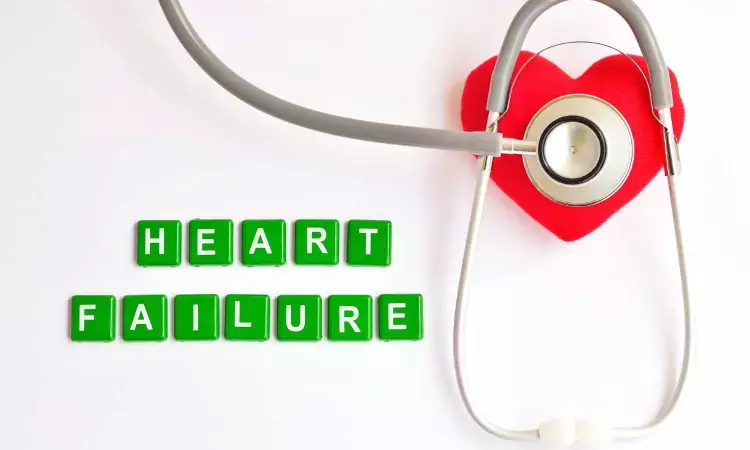- Home
- Medical news & Guidelines
- Anesthesiology
- Cardiology and CTVS
- Critical Care
- Dentistry
- Dermatology
- Diabetes and Endocrinology
- ENT
- Gastroenterology
- Medicine
- Nephrology
- Neurology
- Obstretics-Gynaecology
- Oncology
- Ophthalmology
- Orthopaedics
- Pediatrics-Neonatology
- Psychiatry
- Pulmonology
- Radiology
- Surgery
- Urology
- Laboratory Medicine
- Diet
- Nursing
- Paramedical
- Physiotherapy
- Health news
- Fact Check
- Bone Health Fact Check
- Brain Health Fact Check
- Cancer Related Fact Check
- Child Care Fact Check
- Dental and oral health fact check
- Diabetes and metabolic health fact check
- Diet and Nutrition Fact Check
- Eye and ENT Care Fact Check
- Fitness fact check
- Gut health fact check
- Heart health fact check
- Kidney health fact check
- Medical education fact check
- Men's health fact check
- Respiratory fact check
- Skin and hair care fact check
- Vaccine and Immunization fact check
- Women's health fact check
- AYUSH
- State News
- Andaman and Nicobar Islands
- Andhra Pradesh
- Arunachal Pradesh
- Assam
- Bihar
- Chandigarh
- Chattisgarh
- Dadra and Nagar Haveli
- Daman and Diu
- Delhi
- Goa
- Gujarat
- Haryana
- Himachal Pradesh
- Jammu & Kashmir
- Jharkhand
- Karnataka
- Kerala
- Ladakh
- Lakshadweep
- Madhya Pradesh
- Maharashtra
- Manipur
- Meghalaya
- Mizoram
- Nagaland
- Odisha
- Puducherry
- Punjab
- Rajasthan
- Sikkim
- Tamil Nadu
- Telangana
- Tripura
- Uttar Pradesh
- Uttrakhand
- West Bengal
- Medical Education
- Industry
Lack of socialization may worsen outcomes in older heart failure patients: Study

Japan: Older patients with heart failure who are not social are at higher risk of suffering adverse outcomes, a recent study in Frontiers in Cardiovascular Medicine has revealed.
Older heart failure patients who feel they have lost their social role amongst friends and family are more likely to suffer poor clinical outcomes. The study examined the specific aspects of social interaction that can lead to a poor prognosis for these patients.
"We are the first to show a close association between the loss of perceived social role and long-term poor clinical outcomes in older heart failure patients," said Dr Satoshi Katano, first author of this research, based at Sapporo Medical University Hospital, Sapporo, Japan. "Our study highlights the need to develop a management program that includes a social approach to the care of these patients."
Healthy aging
Social frailty has been widely identified as a risk to healthy aging. Social frailty covers areas such as the loss of social roles, social networks, and social activities.
"Recent research has shown that social frailty is present in two-thirds of older people that suffer heart failure, and it has been linked to worse outcomes for these patients. However, it hasn't been clear exactly why social frailty makes the prognosis worse," explained Katano. "To examine the aspects of social frailty that may contribute to poor outcomes, we measured social frailty using the Makizako questionnaire in over 300 heart failure patients over the age of 65 that were admitted to our hospital for care."
The Makizako questionnaire is a trusted method of assessing social frailty. It asks participants five questions evaluating the patient's social support, activities, living situation, and perceived social role. A negative response to two or more of the five questions indicates social frailty.
"We found that a patient's perceived social role, as well as their social frailty as a whole, was associated with long-term adverse clinical outcomes in older heart failure patients. In addition, these factors added to the likelihood of a negative prognosis," reported Katano.
He continues, "Our study followed patients for three years after their admission to hospital, which is much longer than previous studies that have only followed patients up to a year. This enabled us to examine the long-term impact of social frailty on adverse clinical outcomes in older heart failure patients."
Social aspect to aftercare
The study was conducted in Japan, and while the researchers highlighted that social interactions might vary across different cultures, likely, social frailty will adversely impact health in older heart failure patients in all societies. Therefore, Katano believes that including a social aspect to aftercare is essential.
"The next important step is developing programs to help older heart failure patients with social frailty. Participation in domestic tasks and social activities, such as engagement in meaningful volunteer activities that serve to help others, can all help to improve the perception of social roles in older heart failure patients. These lifestyle changes will help older heart failure patients live longer, healthier, and more productive lives."
Reference:
Ayako Watanabe, Satoshi Katano, Toshiyuki Yano, Ryohei Nagaoka, Ryo Numazawa, Suguru Honma, Kotaro Yamano, Yusuke Fujisawa, Katsuhiko Ohori, Hidemichi Kouzu, Tomoyuki Ishigo, Masaki Katayose, Akiyoshi Hashimoto and Masato Furuhashi.
Dr Kamal Kant Kohli-MBBS, DTCD- a chest specialist with more than 30 years of practice and a flair for writing clinical articles, Dr Kamal Kant Kohli joined Medical Dialogues as a Chief Editor of Medical News. Besides writing articles, as an editor, he proofreads and verifies all the medical content published on Medical Dialogues including those coming from journals, studies,medical conferences,guidelines etc. Email: drkohli@medicaldialogues.in. Contact no. 011-43720751


